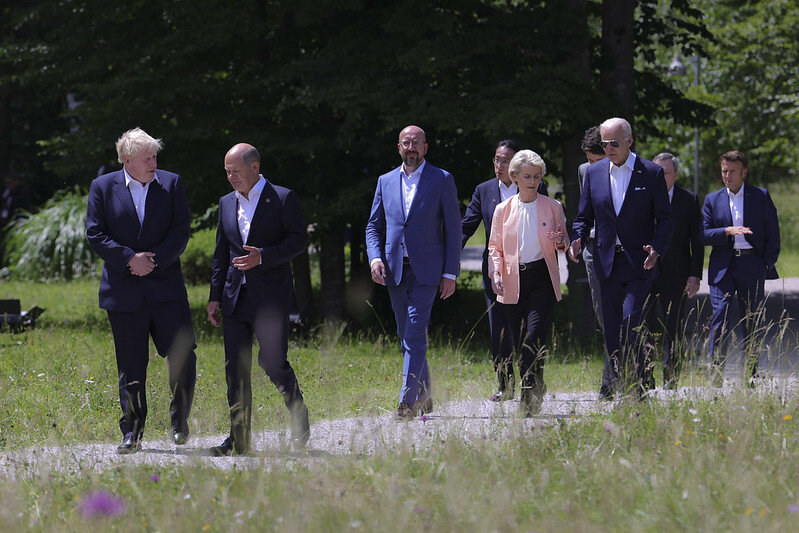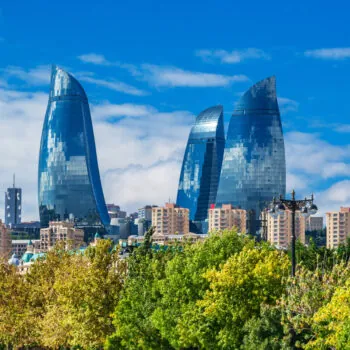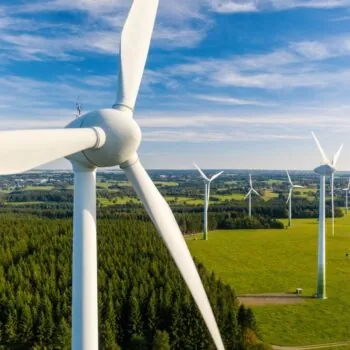The G7 Leaders summit has concluded in Germany with an expected focus on Ukraine and addressing global food insecurity. Climate club, JET Ps, Global Shield were all advanced, but G7 countries own climate action has not progressed.
Story
As expected, the G7 focused on Ukraine and the myriad of geopolitical challenges facing them and the world. Germany’s Chancellor Scholz has stalled on Merkel’s legacy of accelerating G7 climate commitments despite geopolitical distractions.
Without clarity on their own coal phase out and by meddling with their promise to end overseas fossil fuel investment, G7 Leaders have made no progress since ministers met in May. Their commitments to decarbonise electricity by 2035, scale up climate finance and support for countries to address loss & damage when climate impacts hit, stand strong. But we had expected far more from Germany, this was a major moment for the new government.
There were silver linings. The G7 launched new forms of global collaboration to tackle climate change with the ‘global shield against climate risk’, Just Energy Transition Partnerships (JETPs), and the idea of a climate club for accelerating industrial decarbonisation. These are early-stage ideas and to live up to their climate leadership claims, the G7 will need to bring them real financial backing, and global buy in outside the G7 club.
Quotes
Alex Scott, E3G Programme Lead said:
The G7 launching global collaboration to tackle the climate crisis in JETPs, a global shield, and the climate club, show they see climate change as a threat they must address, even amidst a challenging geopolitical context. But they forgot to demonstrate that new scale of action at home. Chancellor Scholz has failed to mobilise new climate commitments from G7 leaders, leaving a huge gap for them to fill in the next four months to have credibility come COP27.
Johannes Schroeten, Policy Advisor at E3G said:
Chancellor Scholz’ attempt to carve out large exemptions from the COP26 ‘statement on international public support for the clean energy transition’ has been averted – but only just. The integrity of the policy stands, but we need urgent clarification of timelines and investment criteria, beyond the empty notion of hydrogen-readiness. The G7 have just wasted this golden opportunity to accelerate the end of international fossil fuel public finance.
Domien Vangenechten, Policy Advisor at E3G said:
Today’s announcement on climate clubs puts the decarbonisation of industry at the heart of the initiative. While the idea to focus on carbon pricing has lost steam, the pivot to heavy industry has the potential to accelerate the development of global green markets through cooperation. G7 countries now need to develop clear Terms Of Reference with a view to incorporating key partners with high level of climate ambition.
Camilla Fenning, Programme Lead, E3G said:
G7 leaders have hit a bump on short term energy transition progress as a result of energy supply challenges. Opening the door to more gas investment is worrying, despite their assurances on avoiding “lock in effects”. Longer term, they have strengthened commitments towards a 2035 power decarbonisation, but now need to implement a 2030 coal phase out to help deliver it.
Julian Havers, Programme Lead, E3G said:
US President Joe Biden led G7 colleagues to launch the Partnership for Global Infrastructure and Investment (PGII), with the aim to jointly mobilize $600 billion in global infrastructure investments over 5 years. But G7 climate champions must match what the US is doing to ensure that this initiative will meet high standards and drive a geopolitical race to the top on sustainability.
Hanna Hakko, Senior Associate, E3G said:
Japan has joined its G7 peers in committing to fully or predominantly decarbonised power by 2035 and the eventual phaseout of coal. As the president of the G7 in 2023, Japan will face expectations to build on this energy transition momentum. Prime Minister Kishida will need to push his administration to show convincing progress in implementing Japan’s own energy transition in the face of increased international scrutiny.
Available for comment – G7 climate
Alex Scott, Programme Lead (Climate diplomacy and geopolitics; EN)
+44 (0)7482 750 760, alex.scott@e3g.org
Johannes Schroeten, Policy Advisor (Fossil Fuel Finance; EN, DE)
+49 (0) 160 9596 4443, johannes.schroeten@e3g.org
Domien Vangenechten, Policy Advisor (Climate Clubs; EN, NL)
+32 (0)474 87 18 27 domien.vangenechten@e3g.org
Julian Havers, Programme Lead (Shifting the trillions; EN, DE))
+49 1602120435 Julian.havers@e3g.org
– ENDS –
Notes to Editors
- E3G is an independent climate change think tank with a global outlook. We work on the frontier of the climate landscape, tackling the barriers and advancing the solutions to a safe climate. Our goal is to translate climate politics, economics and policies into action. About – E3G
- For further enquiries email press@e3g.org or phone +44 (0)7783 787 863
- For a climate club to fly at the G7 summit, it needs to focus on decarbonizing heavy industry Heavy industry focus needed for G7 climate club – E3G



